
The Siberian Husky is a medium-sized working sled dog breed. The breed belongs to the Spitz genetic family. It is recognizable by its thickly furred double coat, erect triangular ears, and distinctive markings, and is smaller than the similar-looking Alaskan Malamute.

A sled dog is a dog trained and used to pull a land vehicle in harness, most commonly a sled over snow.

A wolfdog is a canine produced by the mating of a domestic dog with a gray wolf, eastern wolf, red wolf, or Ethiopian wolf to produce a hybrid.

White Fang is a novel by American author Jack London (1876–1916) about a wild wolfdog's journey to domestication in Yukon Territory and the Northwest Territories during the 1890s Klondike Gold Rush. First serialized in Outing magazine between May and October 1906, it was published in book form in October 1906. It is a companion novel to London's best-known work, The Call of the Wild (1903), which is about a kidnapped, domesticated dog embracing his wild ancestry to survive and thrive in the wild.

Balto is a 1995 live-action/animated adventure film directed by Simon Wells, produced by Amblin Entertainment and distributed by Universal Pictures. It is loosely based on the true story of the eponymous dog who helped save children infected with diphtheria in the 1925 serum run to Nome. The film stars the voices of Kevin Bacon, Bridget Fonda, Phil Collins, and Bob Hoskins. Though primarily an animated film, it uses a live-action framing device that takes place in New York City's Central Park and features Miriam Margolyes as an older version of one of the children. This was the third and final film to be produced by Steven Spielberg's Amblimation animation studio, before the studio's closure in 1997.

Togo was the lead sled dog of musher Leonhard Seppala and his dog sled team in the 1925 serum run to Nome across central and northern Alaska. Despite covering a far greater distance than any other lead dogs on the run, over some of the most dangerous parts of the trail, his role was left out of contemporary news of the event at the time, in favor of the lead dog for the last leg of the relay, Balto, whom Seppala also owned and had bred.

A pack is a social group of conspecific canines. The number of members in a pack and their social behavior varies from species to species. Social structure is very important in a pack. Canine packs are led by a breeding pair, consisting of the alpha male and alpha female.

Balto II: Wolf Quest is a 2002 American animated adventure film produced and directed by Phil Weinstein. It is the sequel to Universal Pictures/Amblin Entertainment's 1995 Northern animated film Balto.
Canine reproduction is the process of sexual reproduction in domestic dogs, wolves, coyotes and other canine species.

Dog behavior is the internally coordinated responses of individuals or groups of domestic dogs to internal and external stimuli. It has been shaped by millennia of contact with humans and their lifestyles. As a result of this physical and social evolution, dogs have acquired the ability to understand and communicate with humans. Behavioral scientists have uncovered a wide range of social-cognitive abilities in domestic dogs.
Kazan is a 1914 novel about a tame wolf-dog hybrid named Kazan. It was written by James Oliver Curwood and was followed in 1917, by a sequel, Baree, Son of Kazan.
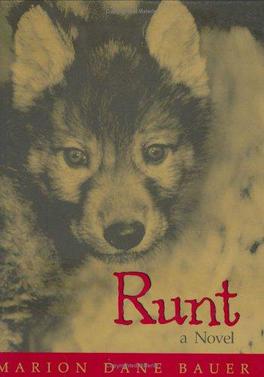
Runt is a 2002 children's novel written by Marion Dane Bauer. It tells of a story about a wolf pup who is a runt.
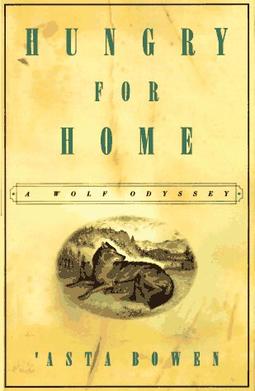
Wolf: The Journey Home, originally titled Hungry for Home: A Wolf Odyssey, is a 1997 American young adult novel written by 'Asta Bowen. Originally published by Simon & Schuster with line drawings by Jane Hart Meyer, it was retitled and reprinted without illustrations in 2006 by Bloomsbury Publishing. Based on true accounts of the Pleasant Valley, Montana, wolf pack, the novel traces the life of a female alpha wolf named Marta after the forced relocation of her pack in 1989 to an unfamiliar territory. Terrified, Marta abandons her pack and begins a journey in search of her home; she eventually arrives in Ninemile Valley, where she finds a new mate with whom she starts a new pack.

Pound Puppies is an animated children's television series developed by Wendy Klein Moss, Nancy Steingard, Paul Germain and Joe Ansolabehere for the Hub Network. It premiered on October 10, 2010 in the United States as the first Hub "original series". It also aired on YTV in Canada and on Boomerang in the United Kingdom, Ireland and Australia. Produced by Hasbro Studios, it was the second series to adapt Pound Puppies into a cartoon format. Originally a property by Tonka, Hasbro acquired Tonka itself and currently manages Pound Puppies. The plot style and music were similar to the 1960s TV series Hogan's Heroes and to films like Stalag 17 and The Great Escape. The first seven episodes of the series were animated by 9 Story Entertainment, but DHX Media/Vancouver took over to animate the series from episode 8 onwards.
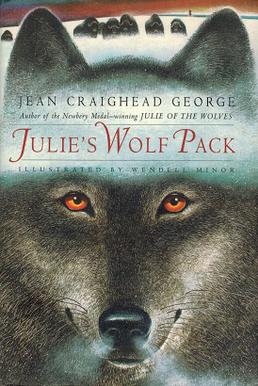
Julie's Wolf Pack is a 1997 novel written by Jean Craighead George. It is the second sequel to the Newbery Medal winner Julie of the Wolves after Julie, and the last in the Julie of the Wolves trilogy. It is the only book in the series whose story is told from the viewpoint of the wolves themselves, rather than from Julie's point of view.

Alpha and Omega is a series of animated films produced by Crest Animation Productions and distributed by Lionsgate Films. The first film was released in 2010 and featured the voices of Justin Long and Hayden Panettiere, though subsequent films were direct-to-video and therefore featured a smaller cast, primarily Ben Diskin and Kate Higgins. All 8 movies were released as an 8 Movie Collection DVD set on October 3, 2017.
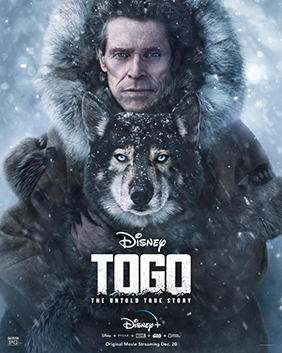
Togo is a 2019 American historical adventure film directed by Ericson Core and produced by Walt Disney Pictures. The film centers on Leonhard Seppala and his titular sled dog in the 1925 serum run to Nome to transport diphtheria antitoxin serum through harsh conditions during an epidemic of diphtheria. The film stars Willem Dafoe, Julianne Nicholson, Christopher Heyerdahl, Michael Gaston, Michael McElhatton, Jamie McShane, Michael Greyeyes, Thorbjørn Harr, Shaun Benson, and Nikolai Nikolaeff. It was released on Disney+ on December 20, 2019. The movie received generally positive reviews from critics.
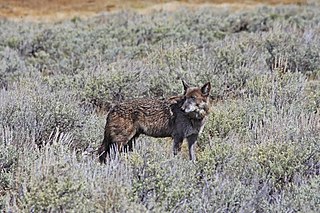
926F (Spitfire) (April 2011 – November 2018) was a wild wolf popular with visitors of Yellowstone National Park. She was killed about a mile outside the park boundary by a hunter when she crossed from the park into Montana, where the hunting of wolves was legal.
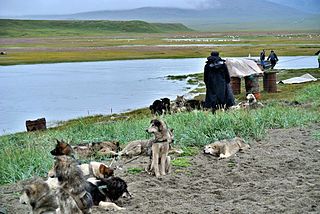
The Chukotka Sled Dog is the aboriginal spitz breed of dog indigenous to the Chukchi people of Russia.

















